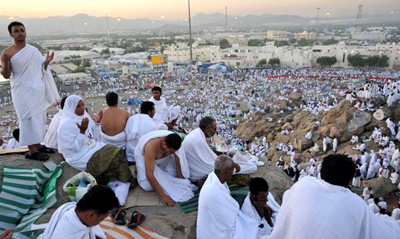It is permissible for the Saudi authorities to expand the portion of standing at 'Arafat

Dar al-Iftaa has confirmed the permissibility of the Saudi authorities responsible for organizing the hajj to make the pilgrims’ departure from Arafat in two or more phases according to what achieves their public interest and according to their numbers.
Dar Al-Iftaa maintained in its fatwa that it is permissible for Muslim rulers who are responsible for organizing hajj to choose from among the acknowledged schools of jurisprudence what they deem most suitable for the safety of pilgrims and which best guarantees their security and comfort.
It is permissible for the ruler to restrict something permissible when it is in the interest of the people, and so he is entitled to choose from the [different] schools of jurisprudence that which he deems to fulfill the legal aims and benefits that have to be observed. Therefore, the ruler's conduct with the subjects is based upon their welfare.
Furthermore, the fatwa issued by Dar Al-Iftaa maintained the impermissibility of expanding the portion of 'Arafat outside its boundaries, a fact upon which Muslims are unanimous. This is especially so, since the goal for the pilgrim in this integral is simply to be present on any portion of the plain of 'Arafat: on its land or beneath its sky, standing or sitting, mounted or lying down, awake or asleep—the goal is not to remain or settle on the plain of 'Arafat because this integral is fulfilled by merely passing through. The influx of pilgrims and overcrowding can be overcome with a comprehensive organization of the pilgrims' departure from 'Arafat to prevent harmful consequences, even if this means having them follow a legal school that does not stipulate a particular time for standing on the plain of 'Arafat .
 Arabic
Arabic French
French Deutsch
Deutsch Urdu
Urdu Pashto
Pashto Swahili
Swahili Hausa
Hausa
